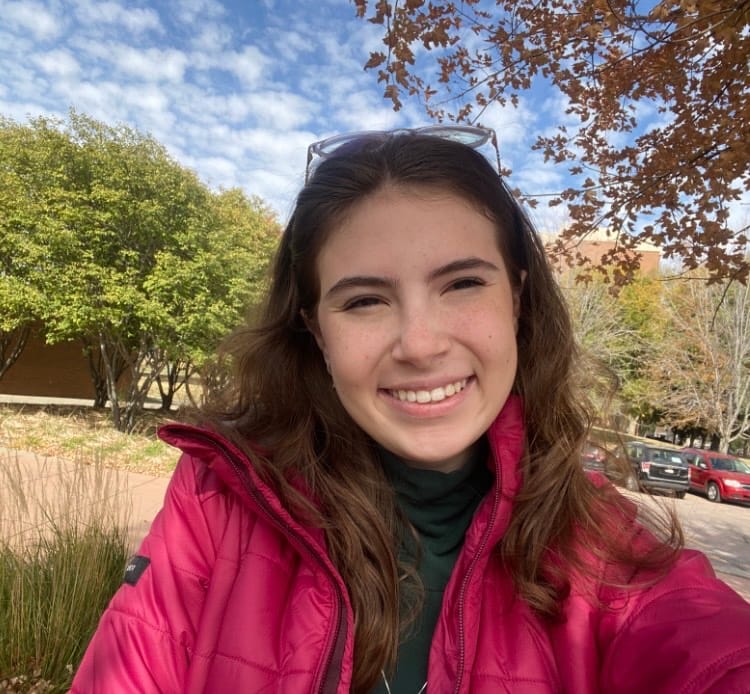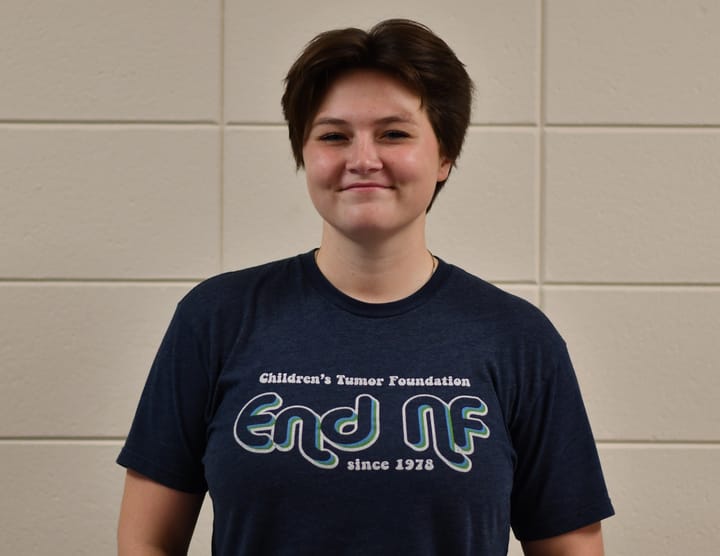Pope Francis broke barriers, built bridges, modeled love

I received the news of Pope Francis's death last week on April 21. I had just met up with my boyfriend when he said with a serious expression, "I have sad news for you." His genuine concern immediately worried me. I asked what had happened, and he hugged me before telling me that he had just seen the news of the Pope’s passing.
I felt a shock. Although I was aware of Francis's declining health, the news still caught me by surprise. Yet what struck me most at that moment was my boyfriend’s gesture; though he is a Muslim, he delivered the news with the same respect reserved for a family loss. He knew how deeply I admired Pope Francis.
My boyfriend was not the only one to feel moved. I received messages of affection from distant friends and family members with whom I rarely speak. What surprised me the most was that most of them were not Catholics but of various other religious beliefs. More than simple condolences, they were genuine expressions of admiration for our Pope.
I must admit that my faith in life after death kept me from feeling sadness for Francis, but I was saddened by what his departure represents for the world. In such delicate times, the loss of a voice that preached peace, that defended the vulnerable and insisted on dialogue, causes real concern. My first prayer was for Francis's soul; the second, for the world he so tirelessly sought to transform.
As a student of government and international relations, I recognize the importance of leaders who transcend their spiritual borders. And as a Catholic, I recognize the blessing it was to have, in Francis, someone who lived so faithfully the most genuine spirit of our faith.
For many, he became a bridge, carrying the true values of Catholicism across boundaries. One of his most defining impacts was his tireless pursuit of interreligious dialogue. He was the first Pope to visit the Arabian Peninsula, the birthplace of Islam, where he signed the Document on Human Fraternity with the Grand Imam of Al-Azhar. He promoted the first meeting between a Pope and a Patriarch of the Russian Orthodox Church since the Schism of 1054, and he carried his message of peace to countries like Iraq, Morocco and Bangladesh.
On this subject, Francis had many striking statements. As a future international relations professional, especially given current global instability, I was deeply touched when he said, "Interreligious dialogue is a necessary condition for peace in the world." As a Catholic, I was even more moved when he reminded us that "a true Christian does not renounce their own identity, but neither do they renounce the pursuit of peace with those who think differently."
Most importantly, through Francis, I learned that these two aspects of my life are not contradictions, but dimensions that strengthen one another. This leads me to my main point: I believe that Pope Francis managed to exemplify balancing fidelity to the laws of the Church with the living-out of Gospel values. Francis did not break with Church doctrine to be more merciful; on the contrary, he showed that true mercy is born precisely from faithfulness to Christian law, correctly understood.
When asked about same-sex marriage, for example, Pope Francis reaffirmed that the Catholic sacrament for matrimony requires marriage to be between a man and a woman — a teaching the Church considers immutable. Still, he has never used this truth as a means of exclusion. Pope Francis has firmly defended the dignity of every person and their right to marry whomever they choose outside of a Catholic context, while continuing to present this as a core value of the Church and a necessity for believers who wish to marry whilst abiding by the sacraments. For those outside the faith, this balance might seem insufficient or even contradictory; however, Francis’s difference lies in his tone and practice of welcoming. Without denying doctrine, he has invited all people to the love of God, including those who feel distant from the Church’s teachings.
When addressing major contemporary challenges, such as poverty, social justice, and care for the environment, Pope Francis never strayed from the tradition of Catholic faith. His proposals emerged directly from Christian doctrine, not from external ideological currents, as he often made a point of emphasizing. His statement "Misericordia non tollit justitiam; immo est plenitudo justitiae,” or “Mercy does not nullify justice; on the contrary, it is the fullness of justice,” encapsulates his approach to social and environmental action whilst reaffirming the core of the Gospel.
Among the faithful, Francis emphasized the need to apply doctrine with charity, not rigidity. In a 2013 homily, he stated, "The Church is not a customs office; it is the Father’s house where there is a place for everyone with their weary lives” – a phrase that calls for spiritual hospitality without barriers.
Externally, he encouraged Catholics to bear witness to their faith without condemning others. In 2013, he said the famous phrase “Who am I to judge?” during his return flight from World Youth Day in Brazil, when journalists asked him about the presence of gay priests in the Vatican. His full response was, "If someone is gay and is seeking the Lord and has good will, who am I to judge them?" Its impact was global — not because it changed doctrine, but because it changed the tone in which others are spoken about.
As a leader, Pope Francis’s mission was not to rewrite the laws but to follow and teach them. Francis constantly reminded us that the law of the Church is not an end in itself but a means leading to freedom and truth. He did not relativize doctrine but taught it with discernment, always aiming for the salvation of souls, the Church’s ultimate mission.
This does not mean that Francis merely accepted the Church as he found it. On the contrary, he reformed what needed correction while preserving what was sacred. From the very beginning of his pontificate, he carried out profound reforms, such as the closure of over 3,000 irregular accounts at the Vatican Bank, the creation of unprecedented internal audits and the authorization for cardinals and bishops to be prosecuted for corruption and abuse. In addressing sexual abuse cases within the Church, he abolished the pontifical secret that had previously hindered cooperation with civil authorities, established mandatory reporting norms and accelerated the investigation and removal of those involved.
Despite these administrative and disciplinary reforms, Francis never touched the sacraments nor altered the essence of the Catholic faith. He preserved the centrality of the Eucharist as "the source and summit of Christian life," as taught by the Catechism of the Catholic Church. In doing so, Francis responded concretely to a long-standing criticism: that the Church’s failures are not in its faith but in its human weakness. Without relativizing the faith, he showed that what must be corrected are human faults, not the immutable truth of Christianity.
Francis did not seek to modernize the Church to conform to contemporary expectations. His effort was deeper: to purify practices and discourse so that the unchanging core of the Christian faith would shine forth more clearly and faithfully to its original mission.
Throughout his pontificate, Pope Francis taught us that the strength of faith lies neither in rigidity nor in condescension, but in the ability to unite truth and mercy, tradition and dialogue, justice and love. His popularity was not born from superficiality but from the coherence between his words and his actions.
At a time when so many religious and political leaders seem content to reinforce walls, Francis chose to build bridges — yet without ever abandoning the foundations that support them. He showed that to be faithful to one’s faith is to have the courage to extend a hand to others; that to reform is not to destroy, but to restore original meaning; and that for those who believe, law and love do not oppose but sustain each other.
Francis did not seek applause or followers for himself. Even his funeral, held on April 21, reflected the values he embodied in life — especially humility, so often overshadowed by ostentation during past papacies. His unornamented wooden coffin remained open so that the faithful could say their goodbyes in a close and affectionate manner, and it is estimated that around 200,000 people — a diverse crowd of religions, cultures and social statuses — came to the Vatican to pay their respects during the days of the wake.
Like Saint Paul, Pope Francis taught us by his life to look beyond him and fix our eyes on Christ, the true model. If so many feel his absence today, it is because, in some way, he achieved what is most difficult: to make visible, even through human limitation, the love of the One we follow.



